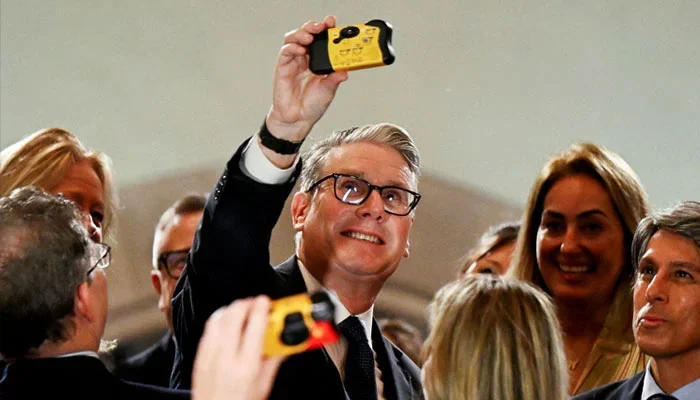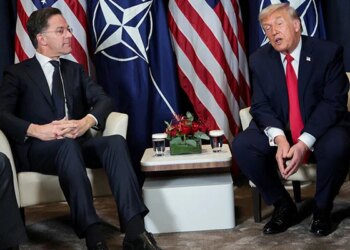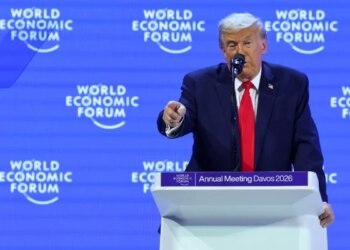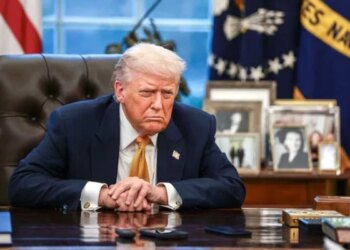Select Language:
Britain’s Prime Minister, Keir Starmer, took a selfie with a disposable camera during a meeting with business leaders at Mumbai’s Taj Mahal Palace on October 8, 2025. — Reuters
– Starmer is starting a visit to India to bolster trade relationships.
– Previous attempts to finalize a trade agreement were hindered by visa restrictions, according to the UK Prime Minister.
– He is advocating for a more cautious approach to immigration policies.
Starmer announced that the UK will not be pursuing a visa arrangement with India as part of its efforts to deepen economic cooperation after signing a trade deal earlier this year. His two-day visit to India includes leading a delegation of business representatives to promote the agreement, which was negotiated in May, signed in July, and is expected to be implemented next year.
He explained that previous trade negotiations encountered obstacles due to visa issues. Since the current trade agreement does not involve visas, he has no plans to reopen that discussion during his meeting with Indian Prime Minister Narendra Modi on Thursday. “That’s not part of the agenda,” he told reporters en route. “The purpose of our visit is to maximize the benefits of the trade deal we’ve already secured.”
Starmer is also signaling a shift toward more restrictive immigration policies amidst heightened public concern over the issue, especially as his Labour Party trails behind the populist Reform UK in opinion polls.
Regarding visas for tech sector professionals from India, Starmer stated they would not be part of the agenda, even though former U.S. President Donald Trump increased fees on H-1B visas. He emphasized his desire to attract top talent to Britain generally. When questioned about halting visas for travelers from countries that fail to take back foreign criminals or wanted deportees, he responded that India’s existing returns agreement makes it less of a concern, but he is open to reviewing broader policies. “We’re considering whether there should be a link between visa issuance and returns agreements,” he noted.







